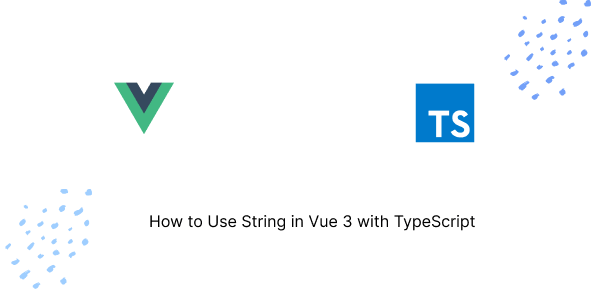In this tutorial, we’ll explore how to use strings in Vue 3 with TypeScript.
1. In Vue 3 with TypeScript, you can define a string variable like this:
Vue
<template>
<div>
<p>The value of the string is: {{ message }}</p>
</div>
</template>
<script setup lang="ts">
let message: string = "Hello, world!"
</script>
2. In Vue 3 options API with TypeScript, you can define a string variable like this:
Vue
<template>
<div>
<p>My name is: {{ message1 }}</p>
<p>My dog name is: {{ message2 }}</p>
</div>
</template>
<script lang="ts">
import { defineComponent } from 'vue'
export default defineComponent({
data() {
return {
message1: "Webvees",
message2: "rockey"
}
}
})
</script>
3. Vue 3 with TypeScript, you can define a string variable using the ref function like this:
Vue
<template>
<div>
<p>The value of the string is: {{ message }}</p>
</div>
</template>
<script setup lang="ts">
import { ref } from 'vue'
const message = ref<string>("Hello, world!")
</script>4. Vue 3 with TypeScript using string with function.
Vue
<template>
<div>
<p>The value of the string is: {{ message }}</p>
<p>The length of the string is: {{ getStringLength(message) }}</p>
</div>
</template>
<script setup lang="ts">
import { ref } from 'vue'
const message = ref<string>("Hello, world!")
function getStringLength(str: string) {
return str.length
}
</script>Javed sheikh

Hello there! I’m Javed Sheikh, a frontend developer with a passion for crafting seamless user experiences. With expertise in JavaScript frameworks like Vue.js, Svelte, and React, I bring creativity and innovation to every project I undertake. From building dynamic web applications to optimizing user interfaces,

